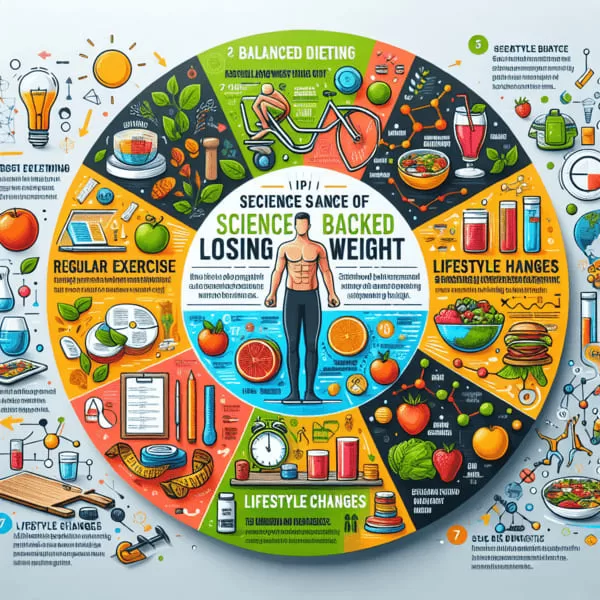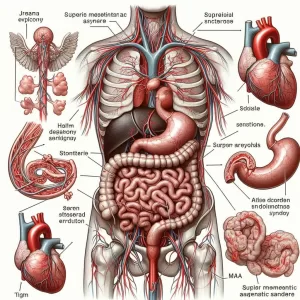Want to Lose Weight Fast? These Science-Backed Tips Can Help You Lose Weight Sustainably
The new product is a great addition to our lineup.
Our latest product is an exciting addition to our already impressive lineup! With its innovative features and sleek design, it's sure to be a hit with customers. Don't miss out on this amazing opportunity to upgrade your life!
Lose Weight Fast: Science-Backed Tips For Sustainable Weight Loss
If you Want to Lose Weight Fast? , science-backed tips can help you do it in a safe and sustainable way. Rapid weight loss can be dangerous, and the best way to ensure long-term success is to take a gradual approach. But with the right strategies and guidance, you can shed pounds without compromising your health.
The Basics of Weight Loss: Calories In vs. Calories Out
The laws of thermodynamics dictate that in order to lose weight, you must burn more calories than you take in. This is called creating a caloric deficit. So, to lose 1 pound, you must create a deficit of around 3,500 calories. The most reliable way to create a caloric deficit is to combine calorie-controlled dieting with regular physical activity.
Eat More Whole Foods
Well-balanced meals should focus on nutrient-dense, unprocessed whole foods. Incorporating plenty of fiber-rich foods like fruits, vegetables, nuts, and seeds will keep you full for longer and help reduce cravings. It’s also important to eat lean sources of protein, such as fish, chicken, and eggs, as well as healthy fats, like those found in avocados and olive oil.
Reduce Portion Sizes
To create a caloric deficit, reducing portion sizes can be an effective and sustainable weight loss strategy. Eating smaller meals throughout the day can help you get into the habit of eating mindfully and pay closer attention to portion sizes. Preparing your own meals with fresh ingredients can also be a great way to stick to a healthy, portion-controlled diet.
Strength Training is Important
Cardiovascular exercise, such as running or cycling, is beneficial for losing weight because it creates a calorie deficit and increases your metabolism. But strength training is just as important for weight loss. Building lean muscle mass helps your body burn more calories, even when you’re resting. Regular strength exercises should include compound movements like deadlifts, squats, bench press, or overhead presses.
Manage Stress Levels
When it comes to losing weight fast, managing your stress levels can be just as important. High stress levels can increase the production of cortisol, the hormone that regulates metabolism. Chronically high cortisol levels can cause weight gain and makes it more difficult for the body to burn fat. Building in regular stress-relieving activities into your daily routine, like yoga, meditation, or journaling, can help you lower your stress levels.
Get Enough Sleep
Adequate rest and sleep are essential for a healthy lifestyle. Sleep deprivation can cause weight gain, increase appetite, and lower metabolic rate. Try to get 7-8 hours of sleep every night and develop a regular routine for going to bed and waking up.
Drink More Water
Staying properly hydrated can help you lose weight and make it easier to make healthier food choices. Drinking plenty of water can also help you stay energized and feeling full throughout the day. Aim to drink 8-10 glasses of water each day and try to avoid sugary drinks like soda or juice.
Avoid Binge Eating
Studies have shown that binge eating can increase the risk of weight gain. People who are prone to binge eating tend to eat impulsively and without thinking. Take steps to reduce these episodes by planning your meals, avoiding triggers, and focusing on controlling emotions.
Optimize Your Diet With Supplements
Supplements can be a useful tool to support a calorie-controlled diet. Some of the most popular supplements for weight loss include omega-3 fatty acids, green tea extract, and CLA (conjugated linoleic acid). Additionally, probiotic supplements may help to reduce cravings and promote digestion.
Conclusion
Losing weight fast doesn’t have to be a daunting task. With the right strategies and guidance, you can reach your weight loss goals without sacrificing your health. Use these science-backed tips to help you lose weight sustainably and keep the weight off in the long-term.
If you’re looking to shed some pounds quickly and sustainably, you’ve come to the right place. In this article, we will provide you with science-backed tips that can help you lose weight fast. By incorporating these strategies into your lifestyle, you can achieve your weight loss goals while maintaining a healthy and balanced approach.
The Role of Caloric Deficit in Sustainable Weight Loss
Are you tired of trying fad diets and quick fixes that promise rapid weight loss but leave you feeling unsatisfied and ultimately gaining back the pounds you lost? If so, you’re not alone. Many people struggle with finding a sustainable way to shed those extra pounds and keep them off for good. The good news is that there is a science-backed approach to weight loss that can help you achieve your goals in a healthy and sustainable way.
One of the key factors in sustainable weight loss is creating a caloric deficit. This means consuming fewer calories than your body needs to maintain its current weight. When you create a caloric deficit, your body is forced to tap into its fat stores for energy, resulting in weight loss over time.
But how do you create a caloric deficit? It’s not as complicated as it may seem. The first step is to determine your basal metabolic rate (BMR), which is the number of calories your body needs to function at rest. There are several online calculators that can help you determine your BMR based on factors such as age, gender, height, and weight.
Once you know your BMR, you can then calculate your total daily energy expenditure (TDEE), which takes into account your activity level. To create a caloric deficit, you’ll want to consume fewer calories than your TDEE. A general rule of thumb is to aim for a deficit of 500-1000 calories per day, which can result in a weight loss of 1-2 pounds per week.
It’s important to note that creating too large of a caloric deficit can be counterproductive. When you drastically reduce your calorie intake, your body goes into survival mode and slows down your metabolism to conserve energy. This can make it harder to lose weight and may even lead to muscle loss. It’s best to aim for a moderate caloric deficit that allows for steady and sustainable weight loss.
In addition to creating a caloric deficit, it’s also important to focus on the quality of the calories you consume. While it’s true that weight loss ultimately comes down to calories in versus calories out, the types of foods you eat can have a significant impact on your overall health and well-being.
Aim to include a variety of nutrient-dense foods in your diet, such as fruits, vegetables, whole grains, lean proteins, and healthy fats. These foods not only provide essential vitamins and minerals, but they also help keep you feeling satisfied and full, making it easier to stick to your caloric deficit.
Another important aspect of sustainable weight loss is finding an exercise routine that works for you. While diet plays a significant role in weight loss, exercise can help boost your metabolism, build lean muscle mass, and improve overall fitness. Aim for a combination of cardiovascular exercise, such as running or cycling, and strength training exercises to maximize your results.
Remember, sustainable weight loss is a marathon, not a sprint. It’s important to approach your weight loss journey with patience and a long-term mindset. By creating a caloric deficit, focusing on nutrient-dense foods, and incorporating regular exercise into your routine, you can achieve your weight loss goals in a healthy and sustainable way. So, say goodbye to quick fixes and hello to a healthier, happier you.
Effective Strategies for Incorporating Exercise into Your Weight Loss Journey

Are you looking to shed those extra pounds and achieve your weight loss goals? If so, incorporating exercise into your weight loss journey is essential. Not only does exercise help you burn calories, but it also has numerous other health benefits. However, finding effective strategies to incorporate exercise into your routine can be challenging. In this article, we will explore science-backed tips that can help you lose weight sustainably by incorporating exercise into your weight loss journey.
First and foremost, it is important to find an exercise routine that you enjoy. Many people make the mistake of forcing themselves to do exercises they dislike, which can lead to burnout and demotivation. Instead, try different types of exercises and find the ones that bring you joy. Whether it’s dancing, swimming, cycling, or hiking, there are countless options to choose from. By finding an exercise routine that you genuinely enjoy, you are more likely to stick with it in the long run.
Another effective strategy is to set realistic goals. It’s important to remember that weight loss is a gradual process and that setting unrealistic expectations can be discouraging. Start by setting small, achievable goals and gradually increase the intensity and duration of your workouts. This will not only help you stay motivated but also prevent injuries and burnout. Remember, slow and steady wins the race.
Incorporating exercise into your daily routine is another key strategy. Many people struggle to find time for exercise amidst their busy schedules. However, by making exercise a priority and scheduling it into your day, you can ensure that it becomes a regular part of your routine. Whether it’s waking up early to go for a run, taking a lunchtime walk, or hitting the gym after work, finding a time that works for you is crucial. Consistency is key when it comes to exercise, so make it a non-negotiable part of your day.
Additionally, finding a workout buddy or joining a fitness community can greatly enhance your exercise experience. Exercising with a friend or a group not only provides accountability but also makes the process more enjoyable. You can motivate and support each other, making it easier to stay on track with your weight loss goals. Whether it’s joining a local sports team, attending group fitness classes, or finding an online community, there are plenty of options to choose from.
Lastly, it’s important to listen to your body and give it the rest it needs. Overtraining can lead to injuries and hinder your progress. Make sure to incorporate rest days into your exercise routine to allow your body to recover and repair. Rest days are just as important as workout days and can actually improve your performance in the long run. Remember, sustainable weight loss is about finding a balance between exercise and rest.
In conclusion, incorporating exercise into your weight loss journey is crucial for sustainable weight loss. By finding an exercise routine that you enjoy, setting realistic goals, making exercise a part of your daily routine, finding a workout buddy or joining a fitness community, and listening to your body, you can effectively incorporate exercise into your weight loss journey. Remember, weight loss is a marathon, not a sprint. Stay consistent, stay motivated, and enjoy the process.
The Importance of Mindful Eating for Long-Term Weight Management
Want to lose weight fast? It’s a common goal for many people, but it’s important to approach weight loss in a sustainable way. Crash diets and extreme exercise regimens may promise quick results, but they often lead to disappointment and can even be harmful to your health. Instead, focusing on mindful eating can be a key factor in long-term weight management.
Mindful eating is a practice that involves paying attention to the present moment and being fully aware of your eating experience. It’s about being in tune with your body’s hunger and fullness cues, as well as your emotions and thoughts surrounding food. By practicing mindful eating, you can develop a healthier relationship with food and make more informed choices about what and how much you eat.
One of the main benefits of mindful eating is that it helps you become more aware of your body’s hunger and fullness signals. Many of us have become disconnected from these signals due to various factors such as stress, emotional eating, or simply eating out of habit. By paying attention to these cues, you can better understand when you’re truly hungry and when you’re satisfied, which can prevent overeating and promote weight loss.
In addition to helping you recognize your body’s signals, mindful eating also encourages you to slow down and savor your food. In today’s fast-paced world, it’s easy to rush through meals or eat on the go. However, eating mindfully means taking the time to appreciate the flavors, textures, and smells of your food. This can enhance your eating experience and make you feel more satisfied, reducing the likelihood of overeating.
Another important aspect of mindful eating is being aware of your emotions and thoughts surrounding food. Many of us turn to food for comfort or as a way to cope with stress. By practicing mindfulness, you can become more attuned to these emotional triggers and find healthier ways to deal with them. This can help break the cycle of emotional eating and promote weight loss.
So how can you incorporate mindful eating into your daily life? One simple way is to start by paying attention to your eating environment. Create a calm and peaceful space free from distractions, such as TV or your phone. This allows you to fully focus on your meal and be present in the moment.
Another helpful tip is to eat slowly and chew your food thoroughly. This not only aids digestion but also gives your brain time to register that you’re full. Put your fork down between bites and take the time to savor each mouthful. This can help you feel more satisfied with smaller portions.
Additionally, try to tune in to your body’s hunger and fullness cues. Before eating, ask yourself if you’re truly hungry or if you’re eating out of habit or boredom. During the meal, check in with yourself periodically to see if you’re still hungry or if you’re starting to feel satisfied. This can help you make more mindful choices about when to start and stop eating.
In conclusion, mindful eating is a powerful tool for long-term weight management. By paying attention to your body’s signals, savoring your food, and being aware of your emotions, you can develop a healthier relationship with food and make more informed choices. Incorporating mindful eating into your daily life can help you lose weight sustainably and maintain a healthy lifestyle. So why not give it a try? Your body and mind will thank you.
Conclusion
In conclusion, incorporating science-backed tips into your weight loss journey can help you lose weight sustainably. By focusing on a balanced diet, regular exercise, adequate sleep, and managing stress levels, you can achieve your weight loss goals in a healthy and sustainable manner. It is important to consult with a healthcare professional before making any significant changes to your diet or exercise routine.
Un commentaire
Laisser un commentaire
Articles populaires








Great article! #weightlosstips #livehealthy